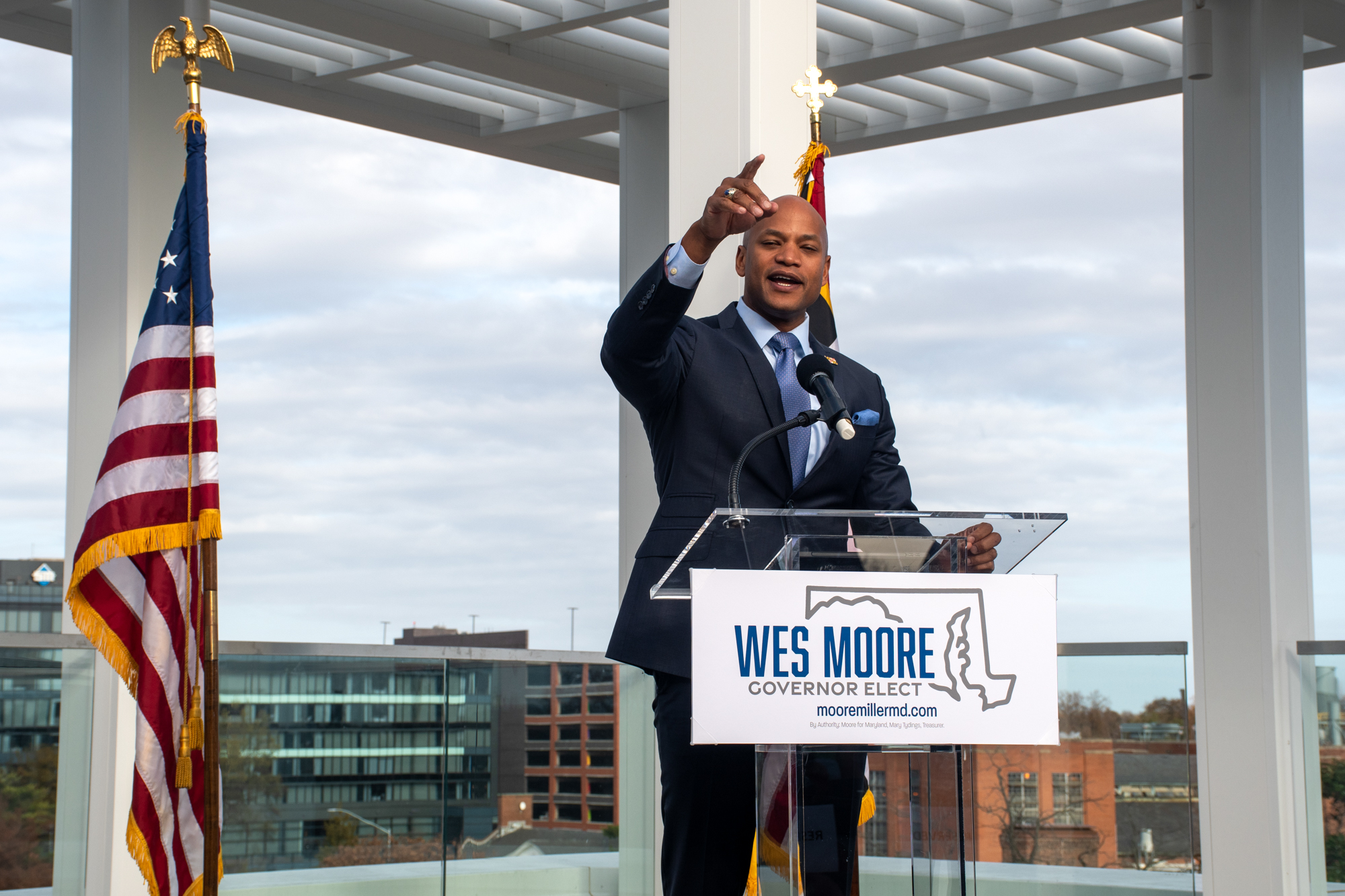As the Maryland legislative session nears crossover day – the last day for a bill to pass out of the legislative chamber where it was introduced and move forward for consideration in the opposite chamber – Gov. Wes Moore’s highest-priority bills are moving through the legislative process.
Here’s a look at some of Moore’s key bills and where they stand ahead of the March 20 deadline.
Fair Wage Act
Democrats in the Senate’s finance committee on Friday amended several provisions in Moore’s bill to accelerate increases to the state’s minimum wage — a rare divergence between the governor and Democratic supermajority
The General Assembly passed a bill in 2019 to gradually raise the state’s minimum wage to $15 an hour by 2025. The state’s current minimum wage is $13.25 per hour.
Moore’s original bill would have expedited the process and raised Maryland’s minimum wage to $15 this October. In the amended version of the bill, the minimum wage would be raised to $15 on Jan. 1, 2024, which is still earlier than expected.
One key provision that was removed from the Fair Wage Act was tying the minimum wage to inflation so that it would increase annually. Nineteen other states and Washington, D.C., have similar policies in place.
Legislators, including Senate President Bill Ferguson, had expressed worries that the automatic increases, which would have been capped at 5 percent, would lead to heightened costs for businesses.
Moore testified for the Fair Wage Act in the Senate earlier this month and emphasized the need for these increases.
“Without indexing, Maryland families will fall further and further behind over time,” he said. “If we do not ensure that the minimum wage keeps pace with inflation, it will be worth less in 2029 than it is today.”
During that hearing, Sen. Stephen Hershey, a Republican representing parts of Kent, Caroline, Cecil and Queen Anne’s counties, expressed concern to Moore that businesses will not be able to afford taking a chance on hiring young workers.
“Do you believe that there’s a possibility that we lose young people in the workforce?” Hershey asked Moore.
The governor responded that other states who have increased their minimum wage have not seen this issue and have experienced economic benefits.
The Fair Wage Act could see more changes in the final weeks of the legislative session as lawmakers try to pass it out of both chambers.
[Maryland General Assembly bills aim to address growing fentanyl overdose crisis]
SERVE Act
The Serving Every Region through Vocational Exploration Act would establish a service year option program for the state’s high school graduates. Moore pledged to expand civil service on the campaign trail.
Maryland Corps, a similar program, already exists in Maryland, but it has not ever been fully launched or funded.
The House of Delegates’ appropriations committee passed a version of the SERVE Act last week that would repeal the Maryland Corps program entirely. Now, the bill is awaiting a vote on the floor of the House before it can move into the Senate. The Senate has not yet made any changes to the bill.
During the bill’s hearing in the appropriations committee last month, lawmakers in the House noted how the bill is nonpartisan.
“This is called working together. Thank you,” Del. Richard Metzgar, a Republican representing parts of Baltimore County, said to the governor.
[Maryland House of Delegates passes bill creating legal framework for recreational cannabis]
Keep Our Heroes Home Act
Moore’s legislative agenda also aims to support the state’s veterans through the Keep Our Heroes Home Act, a bill that expands military retirement tax exemptions.
Moore, a U.S. Army veteran, has earned bipartisan support for this bill. Republican leaders in both chambers have co-sponsored the legislation.
During the bill’s hearing in the Senate’s budget and taxation committee earlier this month, lawmakers praised the governor’s proposal with bipartisan support.
“We need to give to those that gave their sacrifices,” said Sen. Johnny Ray Salling, a Baltimore County Republican. “I hope we can pass this to support our veterans and show them that we want them to stay in Maryland.”
Other neighboring states, such as Virginia and Pennsylvania, already exempt veterans’ retirement income from being taxed by the state. Moore wants to offer these tax benefits so that veterans do not leave Maryland for other states.
“Maryland’s veterans start small businesses, serve on boards and bring their talents to companies that are driving Maryland’s economy forward,” Moore said in a February press release about the bill.
The bill is awaiting its floor vote in the House. The bill is still in committee in the Senate.



